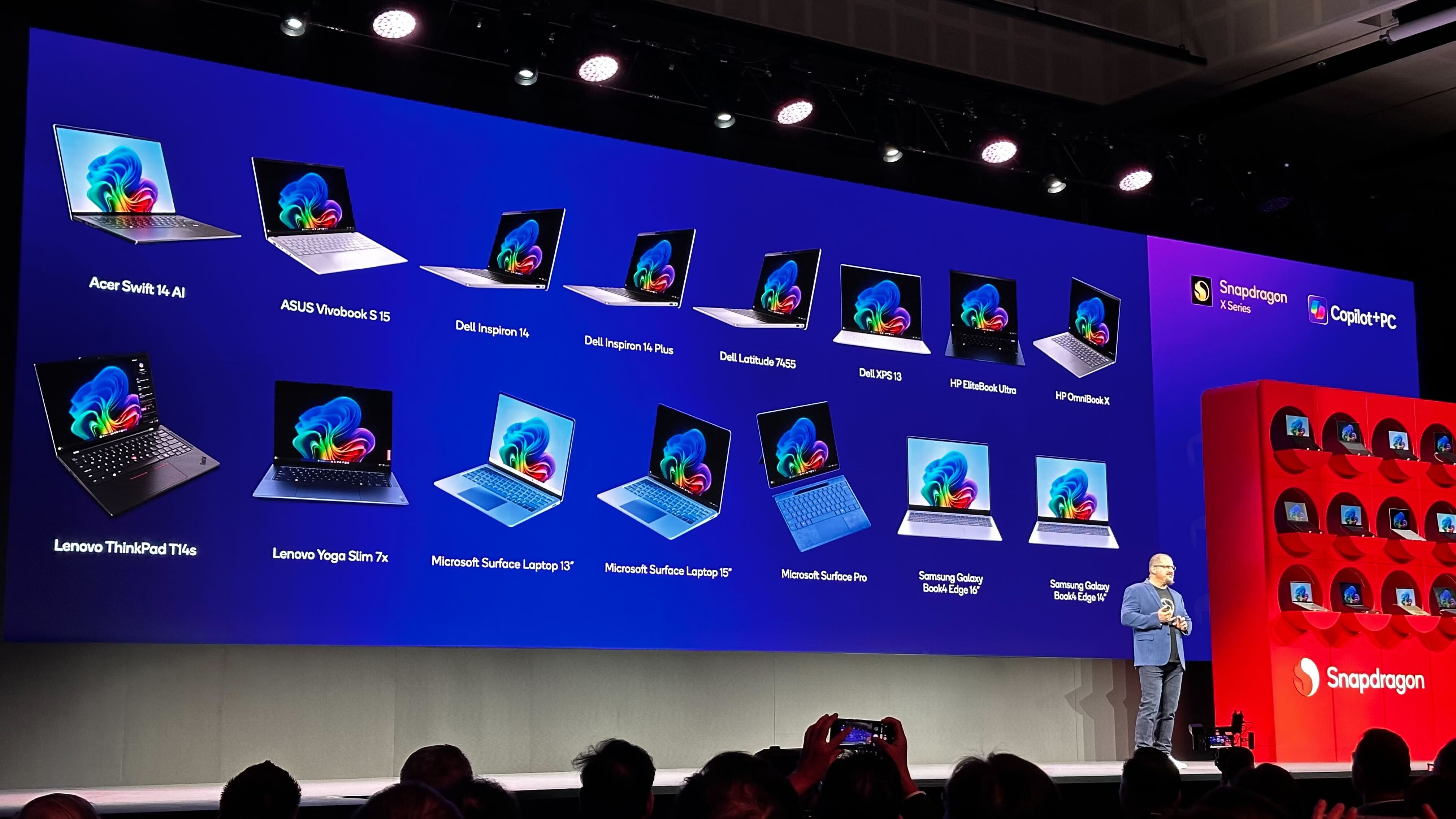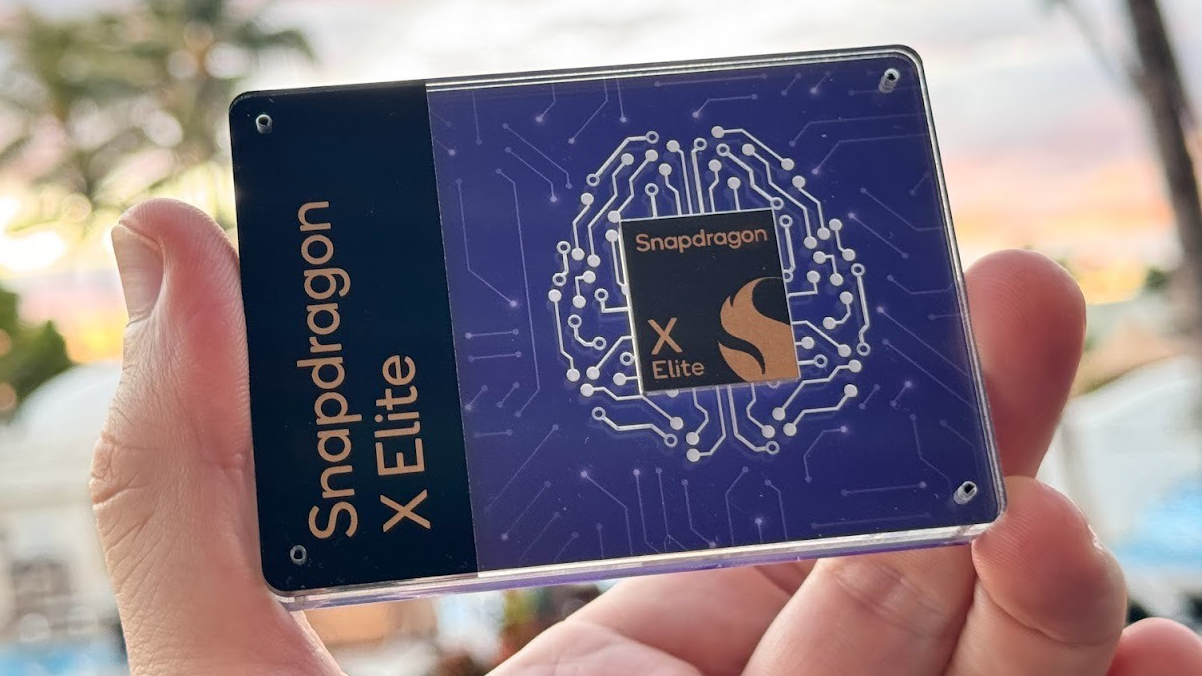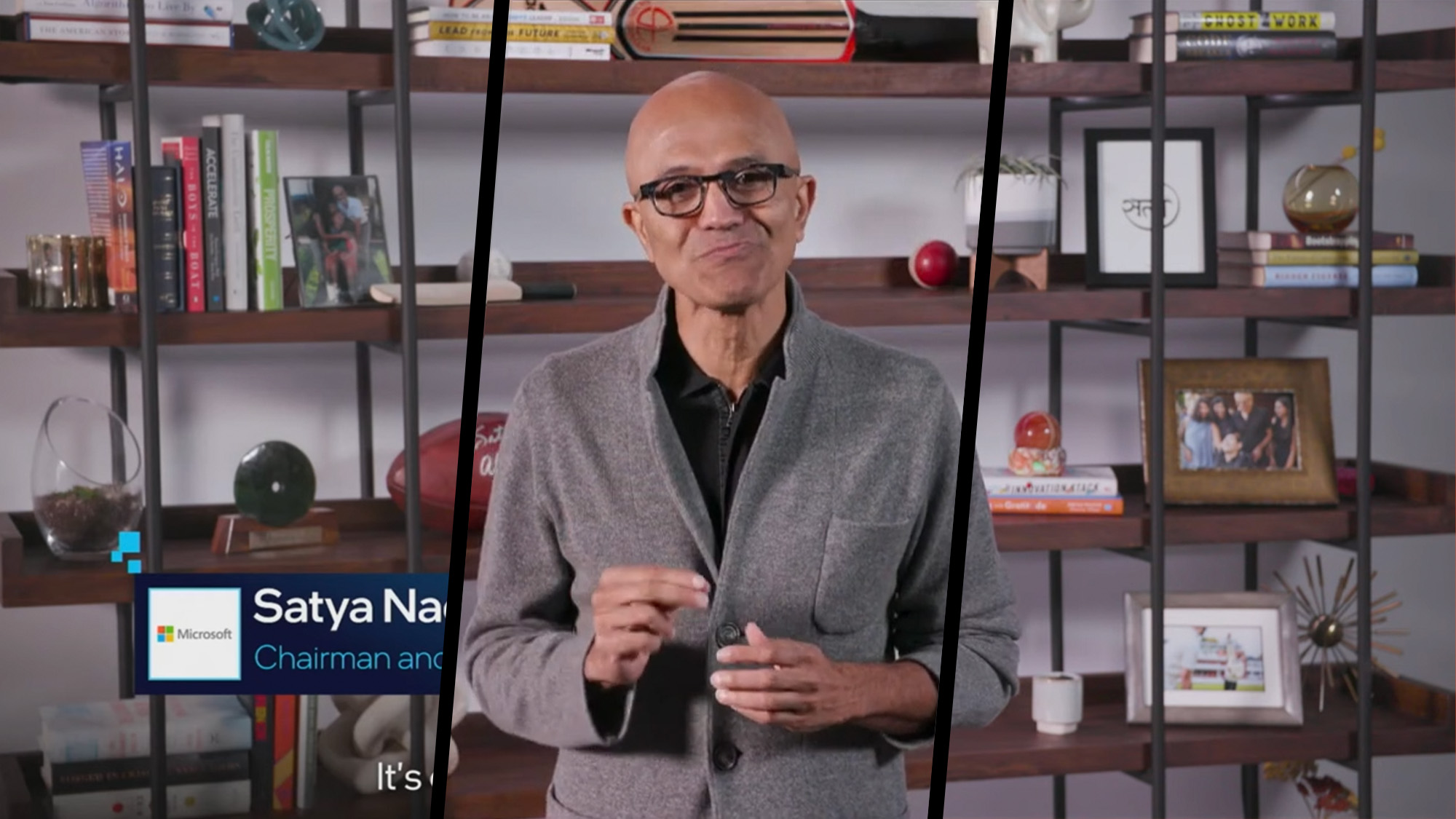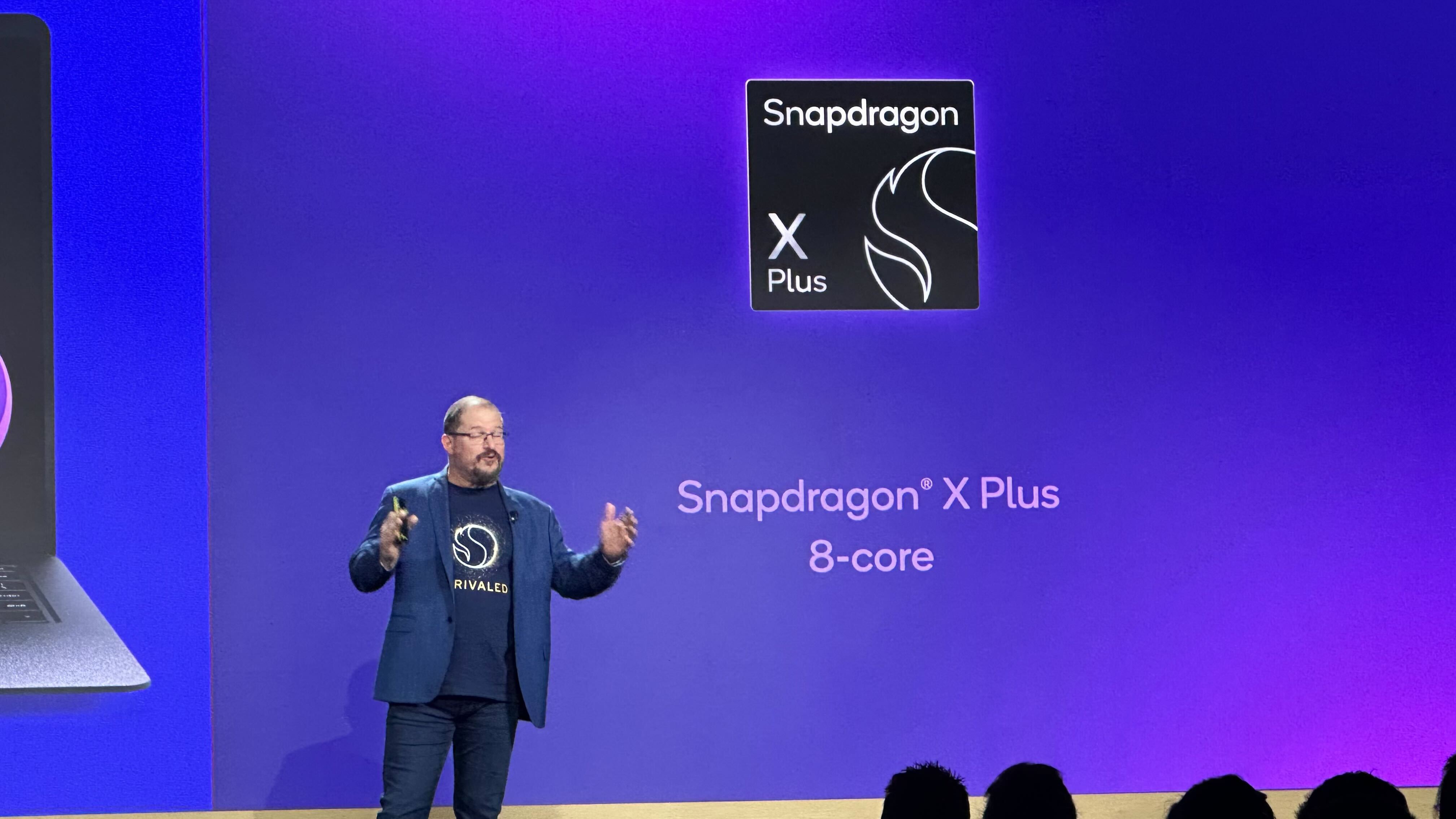
The future of Copilot+ PCs is murkier than ever, as the legal battle between Qualcomm and chip architecture firm Arm continues to simmer.
In a recent escalation of the ongoing legal dispute Arm Holdings, has issued a 60-day cancellation notice for Qualcomm's license to build and sell chipsets with ARM architecture.
The legal entanglement has created a sticky situation for Qualcomm in particular. While Qualcomm manufactures the Snapdragon chips, those processors are built off Arm's technology. That means fallout from the lawsuit could theoretically halt Qualcomm's laptop, smartphone, and automotive chip-making business.
And if Qualcomm's chipmaking business gets shut down, what does that mean for the Copilot+ program?
What is the Qualcomm v Arm Lawsuit about?
Qualcomm has had a successful partnership with Arm Holdings since 2006, to use the ARM (Advanced RISC Machine) architecture to build smartphone processors. Arm Holdings also licenses its technology to Apple for the M-series processors. Nvidia and AMD also have licenses to build chips based on Arm technology.
In 2019 a group of ex-Apple and Google engineers headed by John Bruno, Manu Gulati, and Gerard Williams III founded a hardware company called Nuvia. Arm Holdings and Nuvia had a contract to build SoC (system on a chip) processors for servers. In 2021, Qualcomm acquired Nuvia and reassigned the team to develop a laptop processor which eventually became the Snapdragon X Elite and X Plus chipsets.
When Qualcomm acquired Nuvia in 2021, Arm Holdings canceled the chip licenses Nuvia held before the merger. So in 2022, Arm Holdings sued Qualcomm for failing to negotiate a new license for the Snapdragon X processors, as Arm alleges the laptop chips are a direct descendant of the server processors Nuvia had been building using its now-canceled license. Essentially, Arm argues that these chips constitute a breach of contract and trademark infringement.
Qualcomm is arguing that its existing license is broad enough to cover the Snapdragon X chipsets without renegotiating a new contract with Arm.
A new report from Bloomberg's Ian King indicates that Arm has escalated the legal battle by canceling Qualcomm's license. Arm has given Qualcomm a 60-day notice to end manufacturing and sales of all chips based on Arm's technology.
What happens to Qualcomm if the partnership with Arm falls through?

Qualcomm's entire chip portfolio currently uses technology licensed by Arm Holdings, including Qualcomm's Snapdragon smartphone processors which power most Android phones.
While Samsung has its own proprietary Exynos processor, Samsung's flagship smartphones like the Galaxy S24 Ultra often use the more powerful Qualcomm Snapdragon 8 chipset. Google uses the Tensor processors for the Pixel line, and MediaTek has recently released the Dimensity 9300+ smartphone chip. So, while the Android market won't be bereft of chipset options if Qualcomm and Arm's relationship fails, smartphone manufacturers will be in some serious trouble.
On the automotive side, Qualcomm also sells Snapdragon chips to various car brands including BMW, Honda, Hyundai, Mercedes-Benz, Volkswagen, and Volvo.
As for laptops, Qualcomm released the Snapdragon X Elite chips in June of this year. These were the inaugural Copilot+ AI PCs. Qualcomm has released more processors in the Snapdragon X family, including the new Snapdragon X Plus 8-core processors. Qualcomm reportedly has the Snapdragon X2 Elite processor in testing.
Should the Qualcomm and Arm feud continue to escalate, Qualcomm will not be able to sell any of its smartphone and laptop processors or continue working on the second generation of Snapdragon X chips.
This tense legal battle between Qualcomm and Arm has fueled rumors that Qualcomm plans to buy Intel. After all, if Qualcomm can no longer make ARM processors, the next option is to use x86 architecture which is the basis of Intel's chips like the recent Intel Core Ultra 200V. It's ironic, given that Qualcomm CEO Cristiano Amon spent a large chunk of his Snapdragon Summit Day 1 keynote dunking on Intel's latest processors. Of course, driving down Intel stock prices could make an acquisition easier for Qualcomm. And buying a company that specializes in x86 architecture is a surefire way of mitigating the fallout from the legal battle with Arm Holdings.
But despite all of the chatter, it doesn't seem a Qualcomm takeover of Intel is really in the cards. Intel's business may not be booming, but there isn't a huge valuation gap between the two companies making an acquisition difficult. Additionally, Qualcomm's own stock is currently dropping after Arm delivered its license cancellation notice.
Ultimately, Qualcomm's future looks bleak if the legal battle with Arm isn't resolved in the next 60 days.
What that means for Microsoft and the Copilot+ AI PC program

Microsoft launched the Copilot+ program exclusively on Qualcomm Snapdragon laptops. While AI PCs bearing AMD's Ryzen AI 300 series and Intel's Core Ultra 200V series chipsets will become Copilot+ PCs, the death of the Qualcomm Snapdragon X platform will still have consequences for the entire program.
After all, Microsoft put the Snapdragon X chipsets in the Surface Pro 11 and Surface Laptop 7 as launch units for the Copilot+ program. A Surface Laptop 7 powered by Intel's Core Ultra 200V "Lunar Lake" series processors has already leaked, but the laptop has yet to hit the shelves. So if Qualcomm's relationship with Arm is severed, Copilot+ will have no available laptops or tablets until the AMD and Intel laptops get added to the program.
Copilot+ AI is also hardly a selling point for the platform, as the features aren't particularly unique or interesting. So if the inaugural Copilot+ laptops are de-listed, there will be no real reason to continue the program. Intel already has its own AI Playground software with similar AI tools, and AMD has a Ryzen AI software stack that allows for easy porting of TensorFlow and PyTorch models to Ryzen AI laptops. While both the Intel Core Ultra 200V and AMD Ryzen AI 300 series processors will hit Microsoft's Copilot+ NPU TOPS requirements, Copilot+ will be a program searching for a cause without the Qualcomm Snapdragon chipsets.
Qualcomm v Arm: Outlook

Qualcomm and Arm Holdings falling out would ultimately be pretty bad for both companies. Qualcomm needs that ARM license to continue selling chips for laptops, cars, and phones. Arm Holdings will lose a decent chunk of revenue if Qualcomm's business shuts down. Destroying the partnership is a poor financial decision on both sides.
So the likelihood of Arm enforcing the license cancellation is low, and the tactic is likely intended to push for a settlement out of court. The Arm Holdings v Qualcomm lawsuit goes to trial in December, which lines up with the 60-day cancellation deadline.
If the companies settle, little would likely change for the AI PC business and the Copilot+ program. While there will likely be some consequences from the settlement, those will probably impact Qualcomm and not the AI PC business as a whole.
If the companies are unable to settle out of court, the next year will be very difficult for Qualcomm and Microsoft as the legal battle drags on in the US court system.







